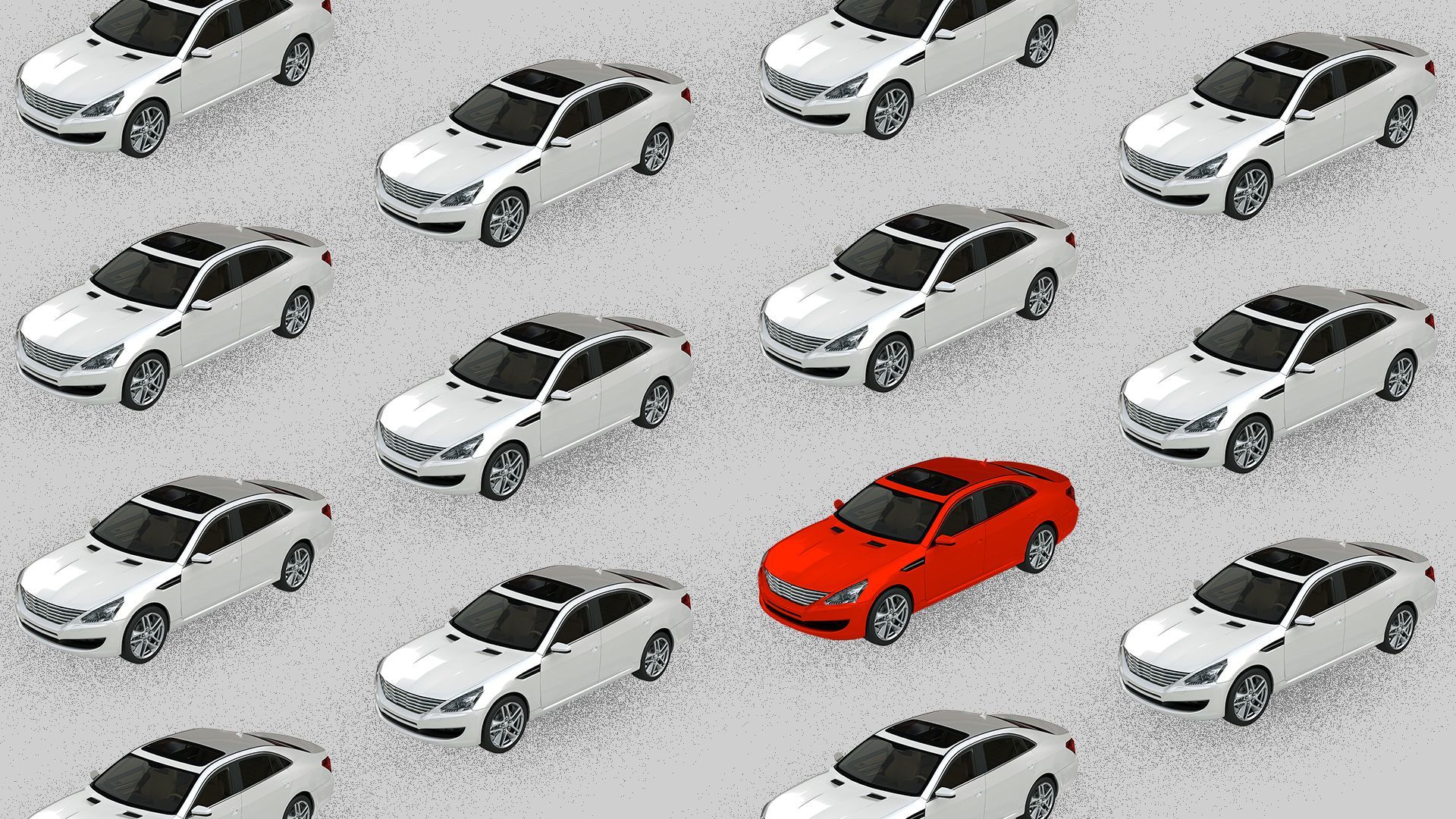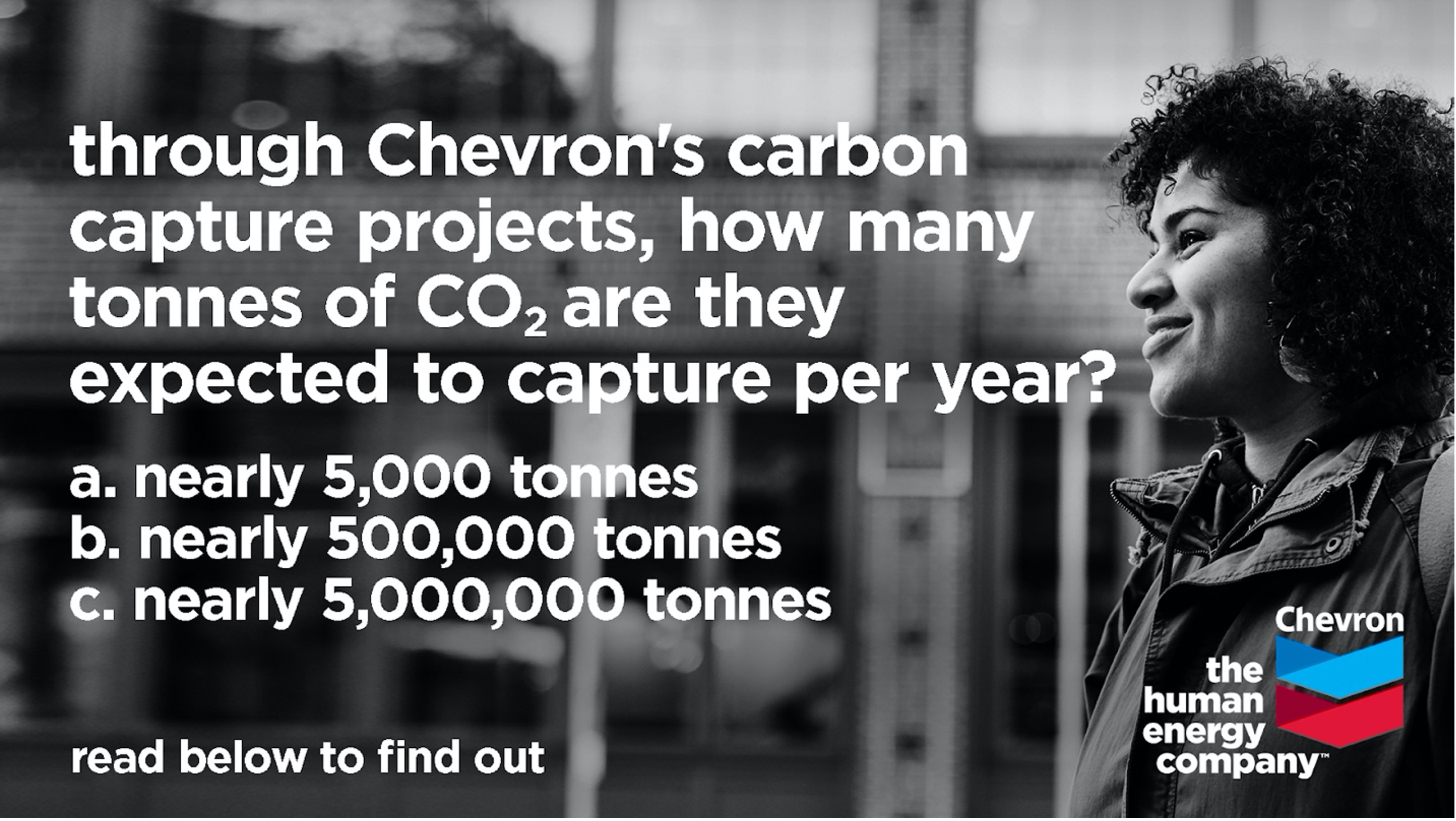| | | | | | | Presented By Chevron | | | | Generate | | By Ben Geman and Andrew Freedman ·Jun 07, 2021 | | Welcome back, readers! Today's Smart Brevity count is 1,236 words, 4.7 minutes. ⏭️ On 6/14, we're launching What's Next, a newsletter covering mega-trends around cities, transportation, work, and more. Sign up now. 🚨 Ukrainian President Volodymyr Zelensky told Axios he learned through the press — not a direct heads-up — that President Biden would stop trying to block a Russian gas pipeline that Ukraine calls a national security threat. Go deeper 🎶 And yesterday marked 25 years since Belle and Sebastian released their debut album "Tigermilk," which provides today's intro tune... | | | | | | 1 big thing: The global stakes of Biden's infrastructure negotiations |  | | | Illustration: Aïda Amer/Axios | | | | The infrastructure drama enveloping Capitol Hill could spill onto the global climate stage, Ben writes. The big picture: The White House is negotiating with Republicans amid all kinds of uncertainty over whether Democrats can pass legislation without GOP backing. - President Biden has proposed major investments in electric vehicles, grid tech, mass transit, clean energy tax incentives and many other initiatives.
- The negotiations with Republicans — who object to the plan's steep price tag and expansive definition of infrastructure — come ahead of November's critical United Nations climate summit.
Why it matters: Major new U.S. investments and policies could help spur other nations to take more aggressive and tangible steps to cut emissions. But failure to steer major new initiatives through Congress could hinder the White House diplomatic posture as the U.N. conference looms. What they're saying: "Because of the importance of American leadership on climate, the rest of the world is definitely watching what happens on Capitol Hill," said the Environmental Defense Fund's Nathaniel Keohane. - Keohane, who leads EDF's climate program, said major U.S. investments will bolster the country's economy and competitiveness. But they're also consequential internationally, he said.
- "The more the U.S. can demonstrate leadership — not only in the ambition of its targets but in the ambition of its implementation and the seriousness of its implementation — the more likely we are to see the rest of the world stepping into its ambition and accelerating its own climate action," he said.
Catch up fast: In April the White House set a voluntary target under the Paris Agreement of cutting U.S. emissions by 50% below 2005 levels by 2030. But that's much harder to achieve absent Capitol Hill approval of new investments and incentives. - The Atlantic Council's Margaret Jackson said Biden's climate initiatives thus far have borne some fruit, pointing to several nations strengthening their Paris targets.
- But Jackson, who has written about the importance of congressional action, also tells Axios: "U.S. allies and partners are still somewhat skeptical in terms of how much this administration can really accomplish, and will it be lasting."
What's next: Biden is slated to speak today with Sen. Shelley Moore Capito (R-W.Va.), the lead Republican on infrastructure negotiations. - Democrats can push their plan through budget reconciliation — the process that enables certain revenue and spending measures to pass with a simple majority Senate vote.
- Those prospects in the 50-50 Senate are far from certain. Democratic Sens. Joe Manchin and Kyrsten Sinema are cool to using reconciliation.
- Commerce Secretary Gina Raimondo told ABC News yesterday that Biden will keep seeking a bipartisan deal, but added, "If we don't get there, then we'll consider other options."
|     | | | | | | 2. Exclusive: DOE's new hydrogen plan |  | | | Illustration: Aïda Amer/Axios | | | | Energy Secretary Jennifer Granholm will on Monday unveil new efforts aimed at massively cutting the cost of producing hydrogen with climate-friendly processes, Andrew and Ben report. Driving the news: The department will announce the "Hydrogen Shot" program to breathe life into the DOE's goal, first announced in April, to drive the costs of clean hydrogen down from about $5 per kilogram today to $1 per kilogram by 2030. - The rollout will include formal "requests for information" on ideas for specific, viable hydrogen demonstration projects as the DOE seeks to make clean hydrogen cost-competitive.
- The hydrogen effort is the first under the DOE's wider new "Energy Earthshots" program, first announced in late May in the department's budget proposal, to bolster development and deployment of multiple carbon-neutral fuels.
Why it matters: The Hydrogen Shot initiative seeks to cut the cost of hydrogen fuels derived from renewable energy, or natural gas if carbon emissions are captured and stored. Read the whole story. * * * Speaking of Granholm, she told CNN that U.S. adversaries have the capability to shut down the power grid, saying they are "trying even as we speak." Axios' Yacob Reyes has more here on her cybersecurity comments. |     | | | | | | 3. A car-buying journey through a climate lens |  | | | Illustration: Aïda Amer/Axios | | | | After 13 years without owning a car, Axios outside contributor Amy Harder writes about her experience getting a new one. Take it away... Why it matters: Driving is one of the most direct ways we as individuals benefit from our activities raising Earth's temperature. It's also one of the clearest ways we can embrace cleaner technologies. This is the story of my personal car-buying journey. I'm sharing because I learned a lot and others may have similar goals. I had three goals in mind (read until the end to find out what I got). The car would have to be: - Efficient: As clean and efficient as possible.
- Affordable: I don't want to spend any more money than necessary.
- Versatile: I don't want to depend on multiple cars. Most electric-car owners almost always own multiple cars.
The big picture: The U.S. transportation sector is America's biggest source of greenhouse gases. We need systemic change, not undue focus on individual action, to tackle climate change. But exploring how we can cut our own carbon footprints helps because it teaches us about those needed systemic changes. Read the whole column. Editor's note: Amy Harder is VP of publishing at Breakthrough Energy. Previously full time at Axios, Amy now writes her Harder Line column as an outside contributor. |     | | | | | | A message from Chevron | | Chevron believes in actions, not just words | | |  | | | | We believe the future of energy is lower carbon. That's why we're tying our executives' compensation to lowering the carbon emissions intensity of our operations. In fact, through our carbon capture projects, we're expected to capture nearly 5 million tonnes of CO2 per year. Learn more. | | | | | | 4. Putting Big Oil's green spending in context |  Reproduced from IEA; Chart: Axios Visuals An International Energy Agency report puts some context around how much the world's largest oil companies are investing in clean energy, Ben writes. The big picture: The chart above shows the combined investments of a collection of roughly 20 giants, including Shell, Exxon and BP, but also state-controlled companies like Saudi Aramco and China National Petroleum Corp. The data, part of a much wider IEA report last week, shows that investments are growing but still remain a small share of the companies' total capital spending. (H/t to Bloomberg for flagging this section.) Why it matters: There's growing investor, activist and legal pressure on oil giants to act more aggressively on climate change and diversify more quickly. The trend was starkly apparent on a single day in late May, when activist investors thwarted Exxon management to install several new board members and a Dutch court ordered Shell to cut emissions faster. The intrigue: While the oil industry's overall capital spending outside core fossil fuel lines remains a small share, the European majors are increasing it more quickly. - The IEA report notes that BP plans to increase annual clean energy investment to $3-$4 billion by 2025, while Shell is "is targeting a 25% share of investment on clean energy capital expenditure by 2025."
|     | | | | | | 5. Three auto things: Fiat, Toyota, Tesla | | Plans: "Fiat is the latest automaker to announce a move entirely to electric vehicles by 2030. The company plans to phase out combustion engine vehicles starting in 2025." (Engadget) Venture capital: "Toyota Motor Corp is rebranding its corporate investment arm as Toyota Ventures and adding two early-stage funds, including one focused on investing in startups developing solutions for climate change and carbon neutrality." (Reuters) Cancellations: "Tesla Inc. has called off plans to build the Model S Plaid+, a longer-range version of its high-end sedan, according to Chief Executive Officer Elon Musk." (Bloomberg) |     | | | | | | 6. Good stuff during our newsletter break | | Giphy Here are a few of Andrew's stories published while Generate was off... 1. Eight large companies, including tech and entertainment giants Amazon, Google, Microsoft, Salesforce, Disney and Netflix, are joining activists and the U.N. to devise ways to scale funding for climate solutions. (Axios) 2. Climavision, a new "weather services and intelligence platform," emerged out of stealth mode with a goal of helping customers manage the growing risks of extreme weather spurred on by climate change. (Axios) 3. Renewing an effort started at the 2015 Paris Climate Summit, leaders of 23 nations say they're redoubling their efforts to fund clean energy technology. (Axios) |     | | | | | | A message from Chevron | | Chevron believes in actions, not just words | | |  | | | | We believe the future of energy is lower carbon. That's why we're tying our executives' compensation to lowering the carbon emissions intensity of our operations. In fact, through our carbon capture projects, we're expected to capture nearly 5 million tonnes of CO2 per year. Learn more. | | |  | | The tool and templates you need for more engaging team updates. | | | | | | Axios thanks our partners for supporting our newsletters. If you're interested in advertising, learn more here.
Sponsorship has no influence on editorial content. Axios, 3100 Clarendon Blvd, Suite 1300, Arlington VA 22201 | | | You received this email because you signed up for newsletters from Axios.
Change your preferences or unsubscribe here. | | | Was this email forwarded to you?
Sign up now to get Axios in your inbox. | | | | Follow Axios on social media:    | | | | | |









No comments:
Post a Comment